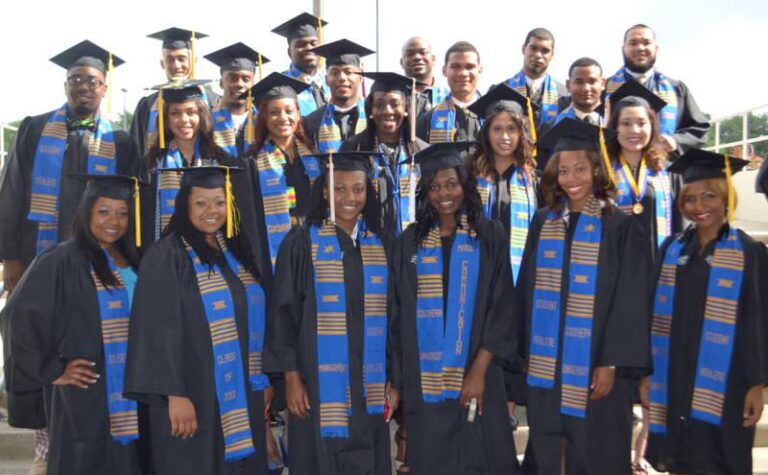As federal scrutiny intensifies on college admissions practices across the nation, a growing number of Boston students are increasingly turning to Historically Black Colleges and Universities (HBCUs) as alternative pathways to higher education. This shift comes amid concerns over admissions policies at some of the country’s most selective institutions, prompting families and students in Boston to reassess their options. The trend highlights a renewed interest in HBCUs, not only as culturally affirming environments but also as viable routes to academic and professional success.
Table of Contents
- Boston Students Seek HBCUs as Federal Policies Shift Admissions Landscape
- Academic and Cultural Appeal Drives Increased Interest in Historically Black Colleges
- Community Leaders Advocate for Strengthened Support and Funding at HBCUs
- Experts Recommend Expanding Outreach Programs to Bridge Access Gaps for Boston Youth
- Insights and Conclusions
Boston Students Seek HBCUs as Federal Policies Shift Admissions Landscape
Increasing uncertainty around federal admissions policies has prompted a noticeable shift among Boston’s college-bound students, many of whom are now exploring Historically Black Colleges and Universities (HBCUs) as viable and attractive alternatives. These students are drawn by the inclusive environments, diverse educational opportunities, and scholarship programs that HBCUs traditionally offer, positioning themselves strategically in a changing admissions landscape. Interviews with local guidance counselors reveal a growing trend where families prioritize institutions with strong community support and guaranteed access, often seeing HBCUs as institutions that actively foster academic excellence in a supportive atmosphere.
The appeal of HBCUs extends beyond just adaptation to policy changes, with students highlighting several key benefits:
- Access to culturally responsive curricula that reflect and affirm their identities.
- Scholarship and financial aid packages specifically tailored for underrepresented minorities.
- Robust alumni networks that enhance career prospects and mentorship opportunities.
- Community-centered campus life, fostering engagement and belonging.
As federal directives evolve, this pattern suggests a broader reconfiguration of student ambitions-one that challenges traditional norms and opens new paths for educational equity and empowerment in Boston and beyond.
Academic and Cultural Appeal Drives Increased Interest in Historically Black Colleges
Amid shifting federal policies and growing concerns over diversity in higher education, historically black colleges and universities (HBCUs) have emerged as a vibrant option for Boston’s student population. These institutions are not only celebrated for their robust academic programs but also for fostering a dynamic cultural environment that resonates deeply with students seeking a strong sense of identity and community. Enrollment officials report an uptick in interest linked to several key factors:
- Comprehensive support systems tailored to assist first-generation and minority students in navigating college life.
- Expanding internship and career placement networks connected to industries actively seeking diverse talent.
- Culturally rich campus experiences that emphasize Black heritage, leadership, and activism.
Furthermore, many Boston students are drawn to HBCUs’ historic commitment to social justice and empowerment, elements often perceived as missing in predominantly white institutions. The influence of federal scrutiny on admissions practices has catalyzed a newfound awareness, prompting students and families to explore these campuses as more than just academic institutions-they are seen as cultural havens and incubators for leadership. This renewed appeal underscores a broader shift in priorities among young learners who value environments that celebrate diversity not only in word but through immersive daily experiences.
Community Leaders Advocate for Strengthened Support and Funding at HBCUs
In response to growing concerns over financial constraints and federal oversight, prominent voices within the community have united to call for enhanced investment in Historically Black Colleges and Universities (HBCUs). Advocates stress that these institutions serve as vital hubs for educational opportunity, cultural preservation, and economic empowerment for Black students nationwide. They emphasize that without increased funding and comprehensive support, the progress achieved by HBCUs in closing academic achievement gaps risks being undone.
Key advocacy groups and leaders have outlined several priorities aimed at strengthening HBCU infrastructure, including:
- Guaranteed federal grants to expand research programs, fostering innovation and increasing competitive edge.
- Improved scholarship programs, ensuring affordability for low-income students from urban areas like Boston.
- Enhanced campus facilities and technology, critical to providing a modern learning environment.
- Support for community engagement initiatives, aligning educational goals with local economic development.
Through these targeted measures, community leaders advocate for policies that recognize and bolster the unique role HBCUs play in cultivating future leaders and bridging socioeconomic disparities.
Experts Recommend Expanding Outreach Programs to Bridge Access Gaps for Boston Youth
In response to the increasing number of Boston students gravitating toward Historically Black Colleges and Universities (HBCUs), education specialists and community leaders are calling for comprehensive expansions of local outreach programs. These initiatives aim to tackle the persistent disparities in college access that disproportionately affect underrepresented youth. By strengthening partnerships between schools, community organizations, and higher education institutions, experts believe more tailored support can be provided to guide students through the complexities of the college admissions process amid growing federal scrutiny and policy shifts.
Key strategies highlighted by professionals include:
- Enhanced college readiness workshops focused on application navigation and financial aid literacy.
- Mentorship programs pairing students with alumni and current HBCU attendees to offer personalized guidance.
- Community outreach events designed to raise awareness about diverse educational opportunities and career pathways.
- Expansion of resource centers within schools to provide on-demand support including tutoring and counseling.
By amplifying these outreach measures, Boston can better ensure equitable access to higher education options, empowering youth to make informed choices despite increasing external pressures.
Insights and Conclusions
As federal scrutiny intensifies and state policies increasingly challenge affirmative action, more Boston students are exploring Historically Black Colleges and Universities as viable pathways to higher education. This trend underscores the evolving landscape of college admissions and highlights the enduring significance of HBCUs in providing diverse and supportive environments for students navigating complex admissions climates. As this shift continues, stakeholders from policymakers to educators will need to closely monitor its implications for equity and access in American higher education.

